My Soil Farsh فرش (Carpet): Iteration 1, The Ritual of Gathering
EXHIBITED
2024 First Draft, Sydney, Australia
2024 CHURCHIE Emerging Art Prize, Metro Arts, Brisbane, Australia
MEDIUM
45 kgs red loamy soil (hand-ground and sieved through silk). Hand imprinted with 30 3D-printed resin Farsh motifs.
SIZE
260 X 360 cm
AWARD
2024 Commendation Prize, CHURCHIE Emerging Art Prize
2024 Peoples Choice Award, CHURCHIE Emerging Art Prize
My Soil Farsh is an ongoing, slow, and durational experiment in community building that began in 2022. It is grounded in the Iranian sensibility that the ancient Farsh (Persian carpet) is not merely an object or piece of furniture, but a vital cultural tool for the containment and intimacy required for the togetherness that many—including myself—are yearning for.
Iteration 1: The Ritual-of-Gathering centres on my personal experience of reactivating my own Farsh (Persian carpet) as a tool for ritualised gathering—inviting strangers to eat, talk, learn, and create over nine months. This experiment unfolded in the fostering of strong community relationships.
Material Development | Hand-imprinting



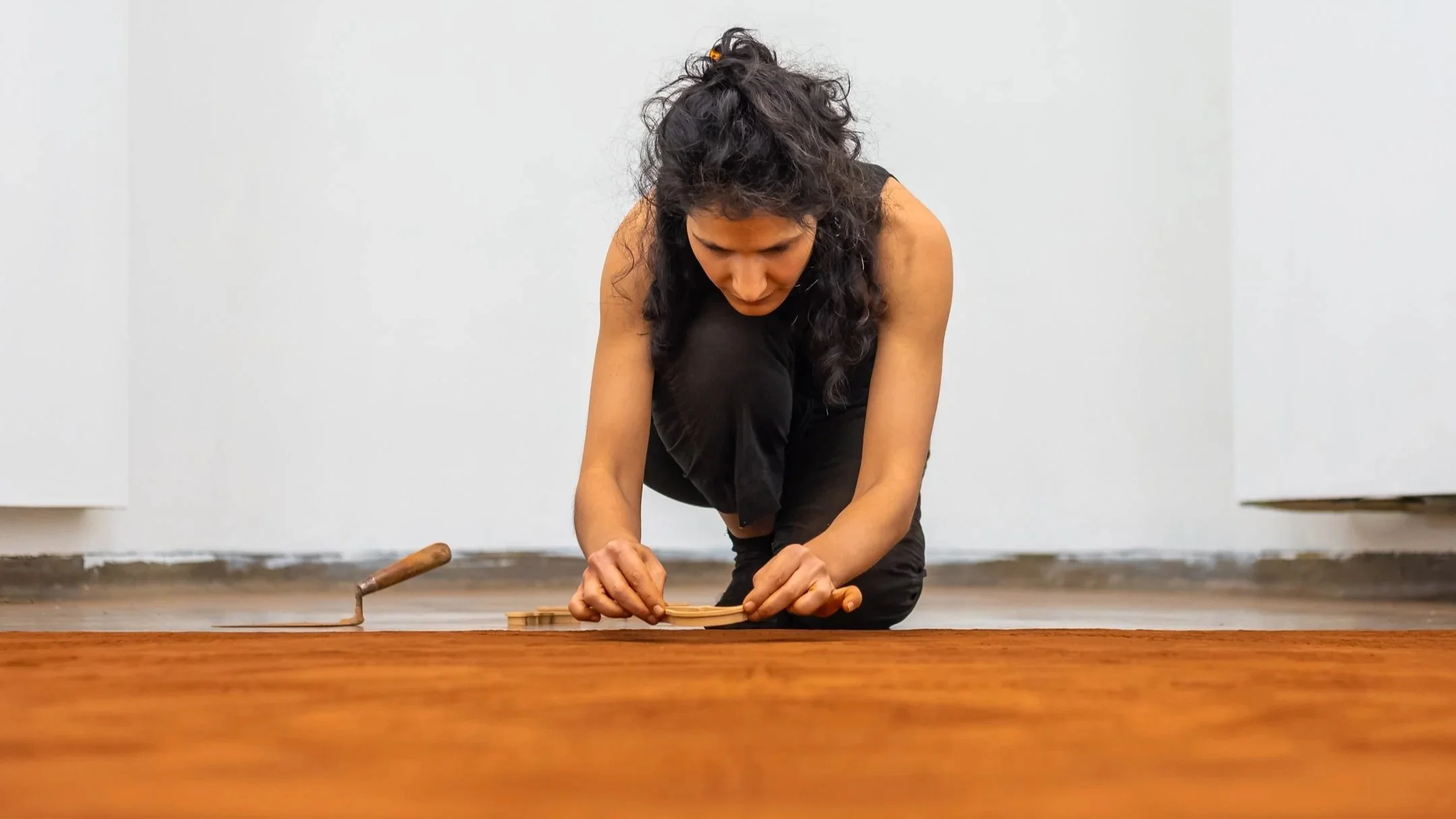



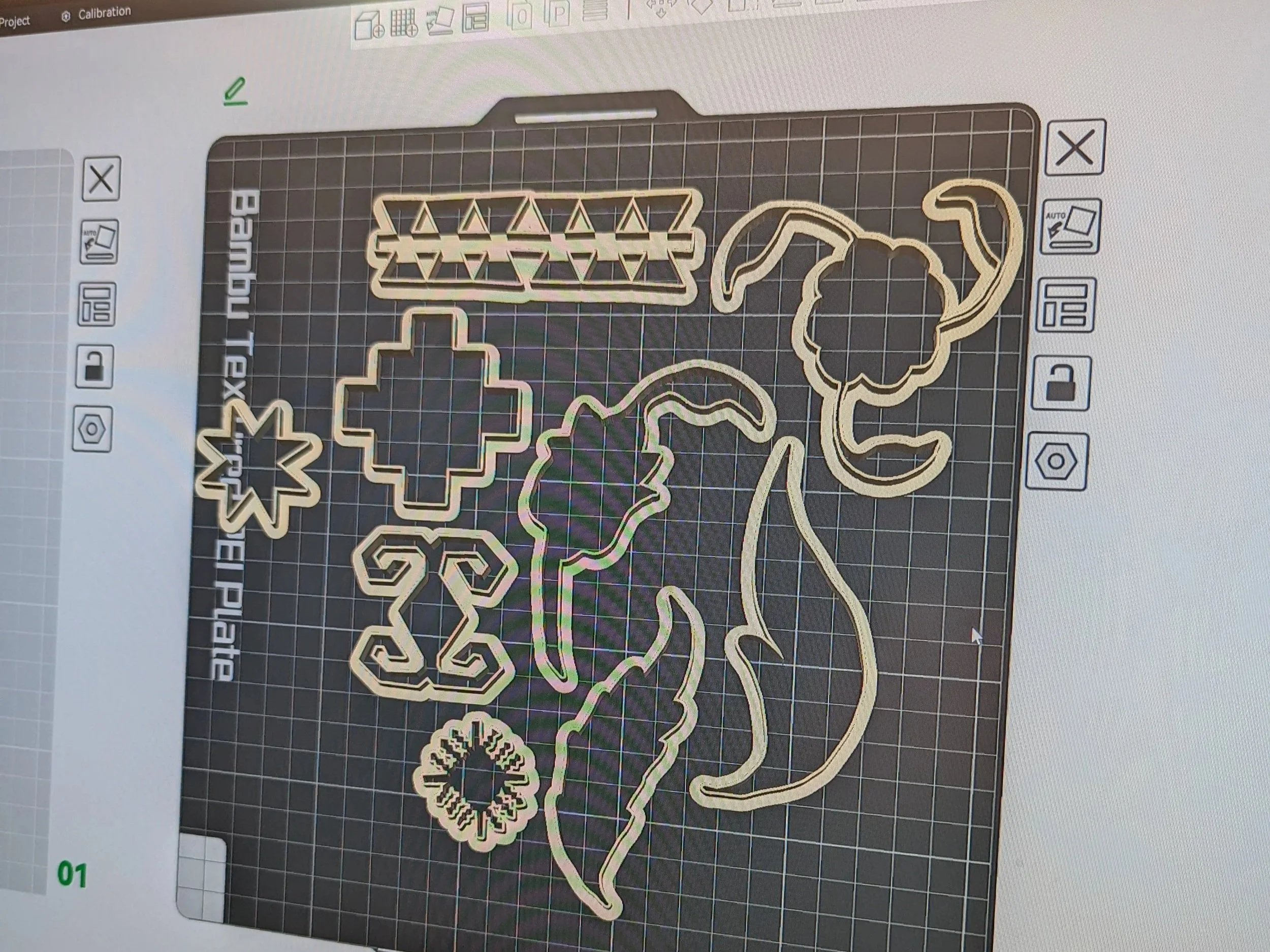

Installation View | Public Programming



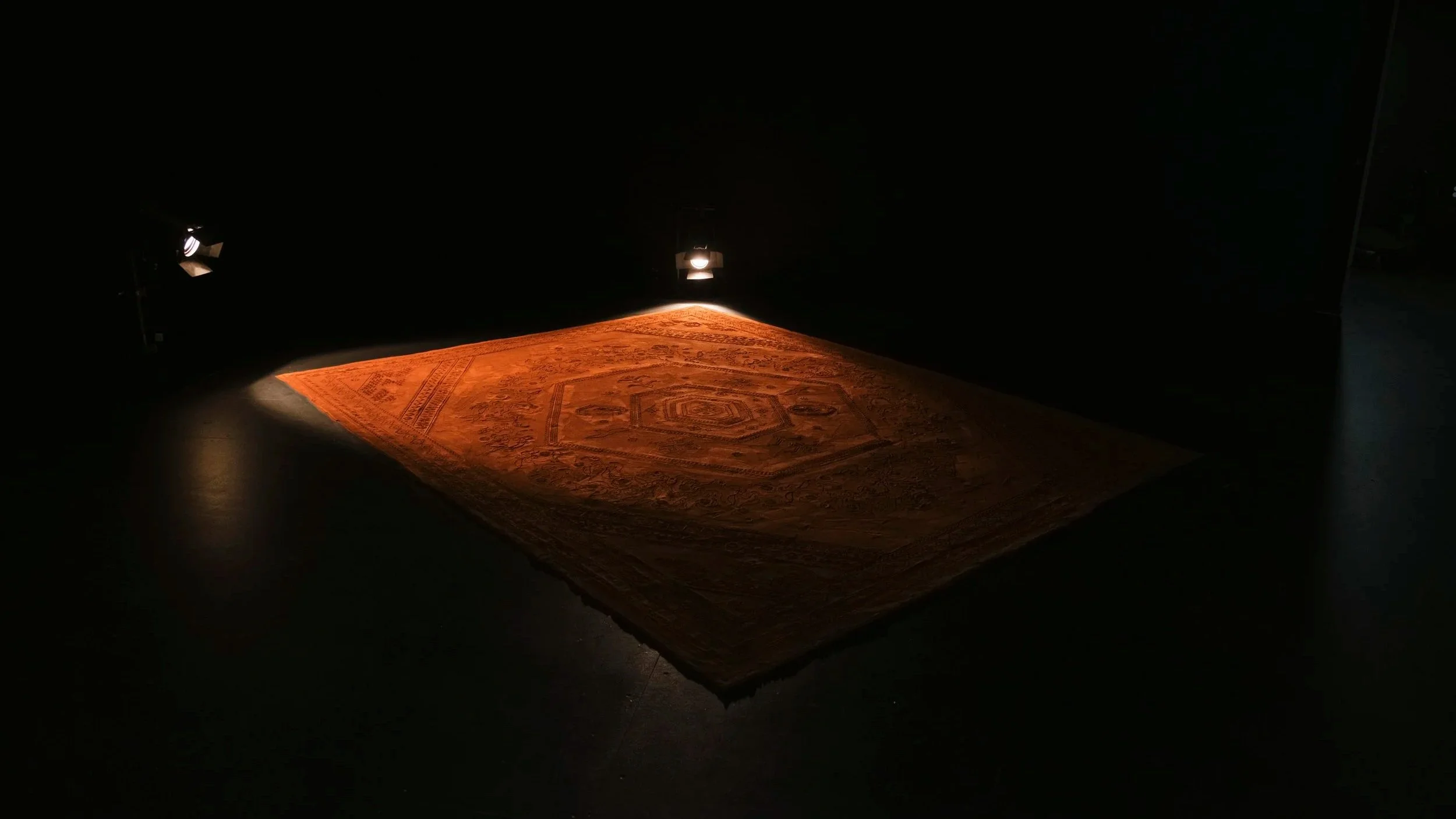

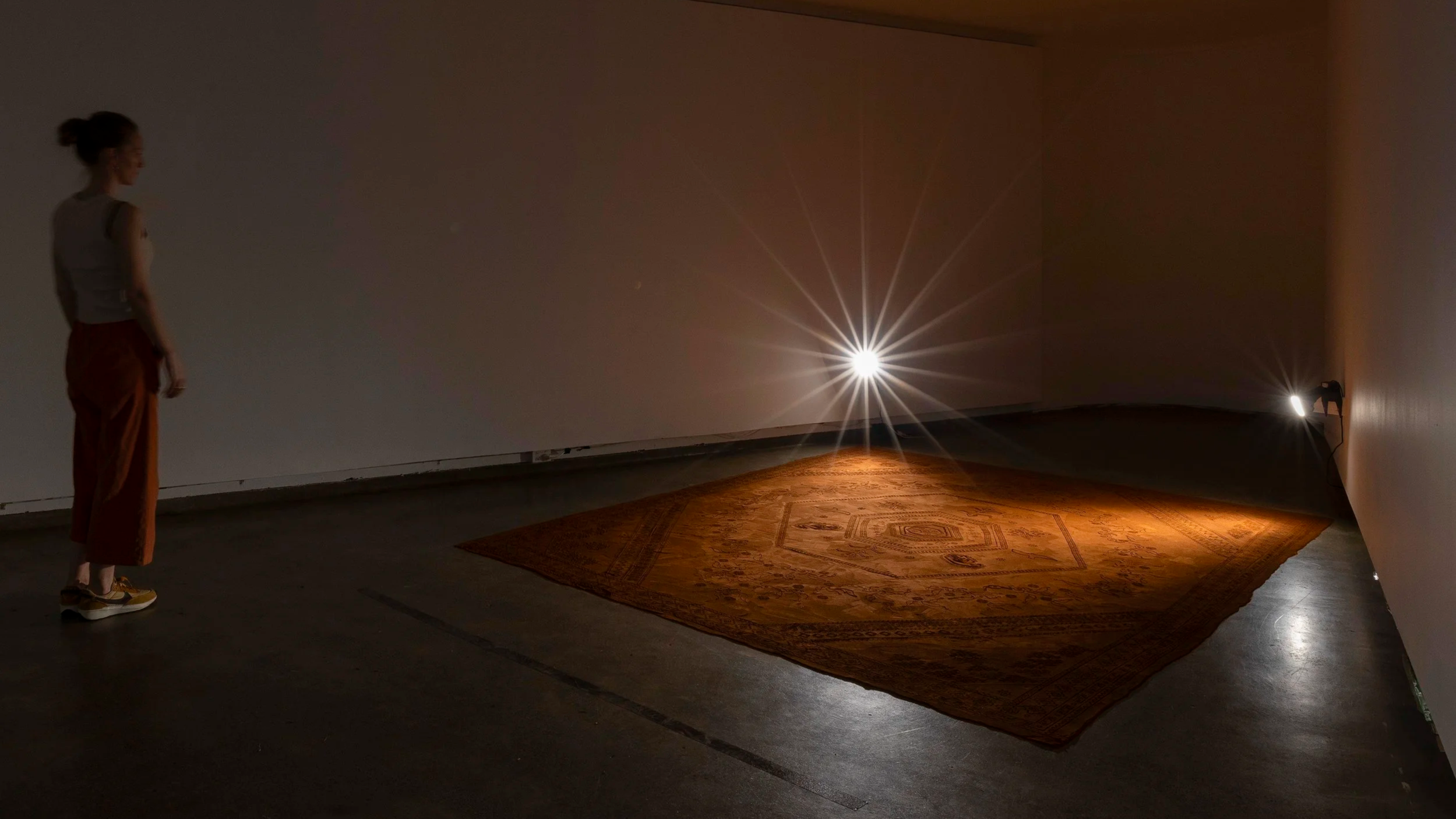
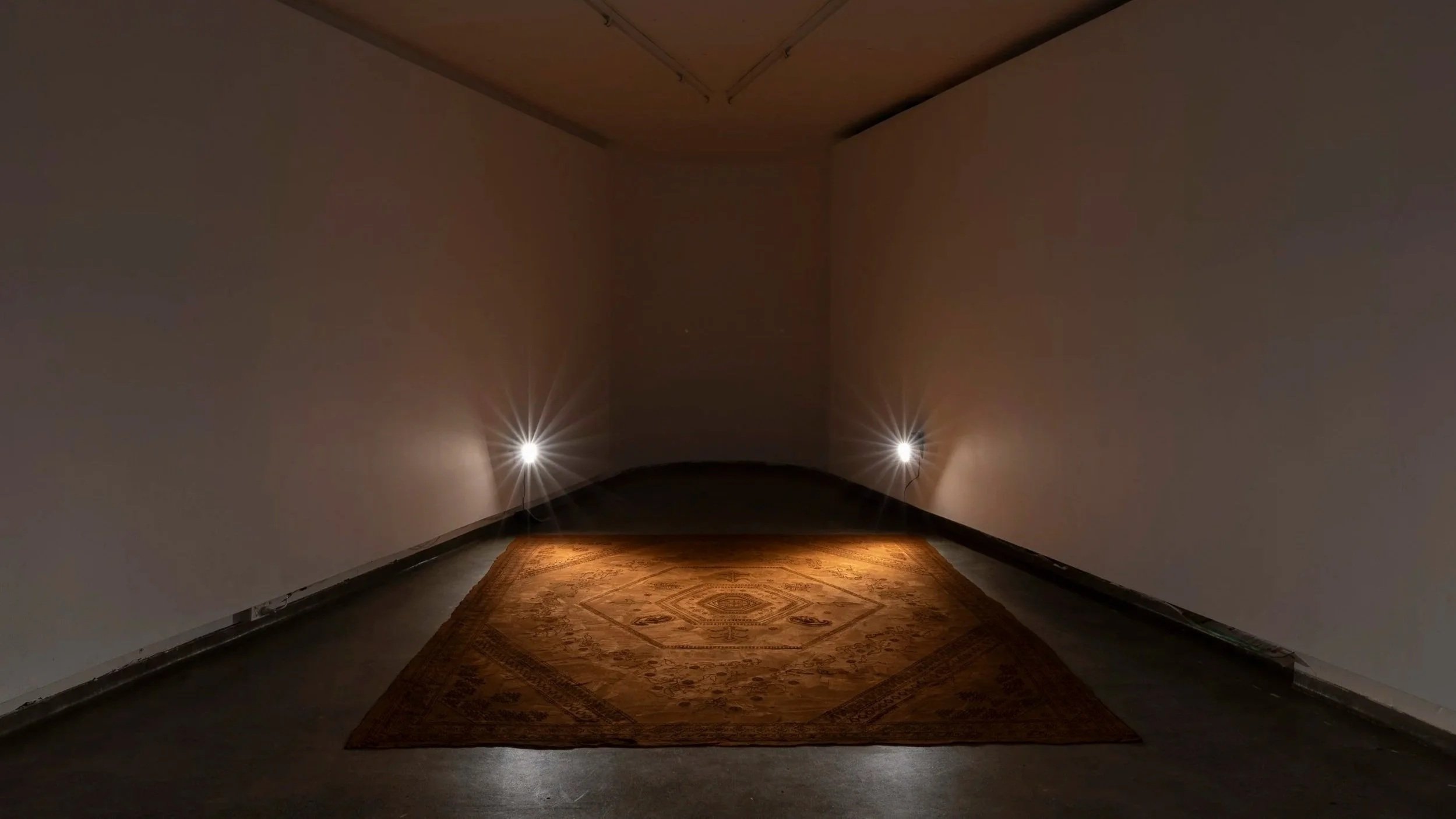
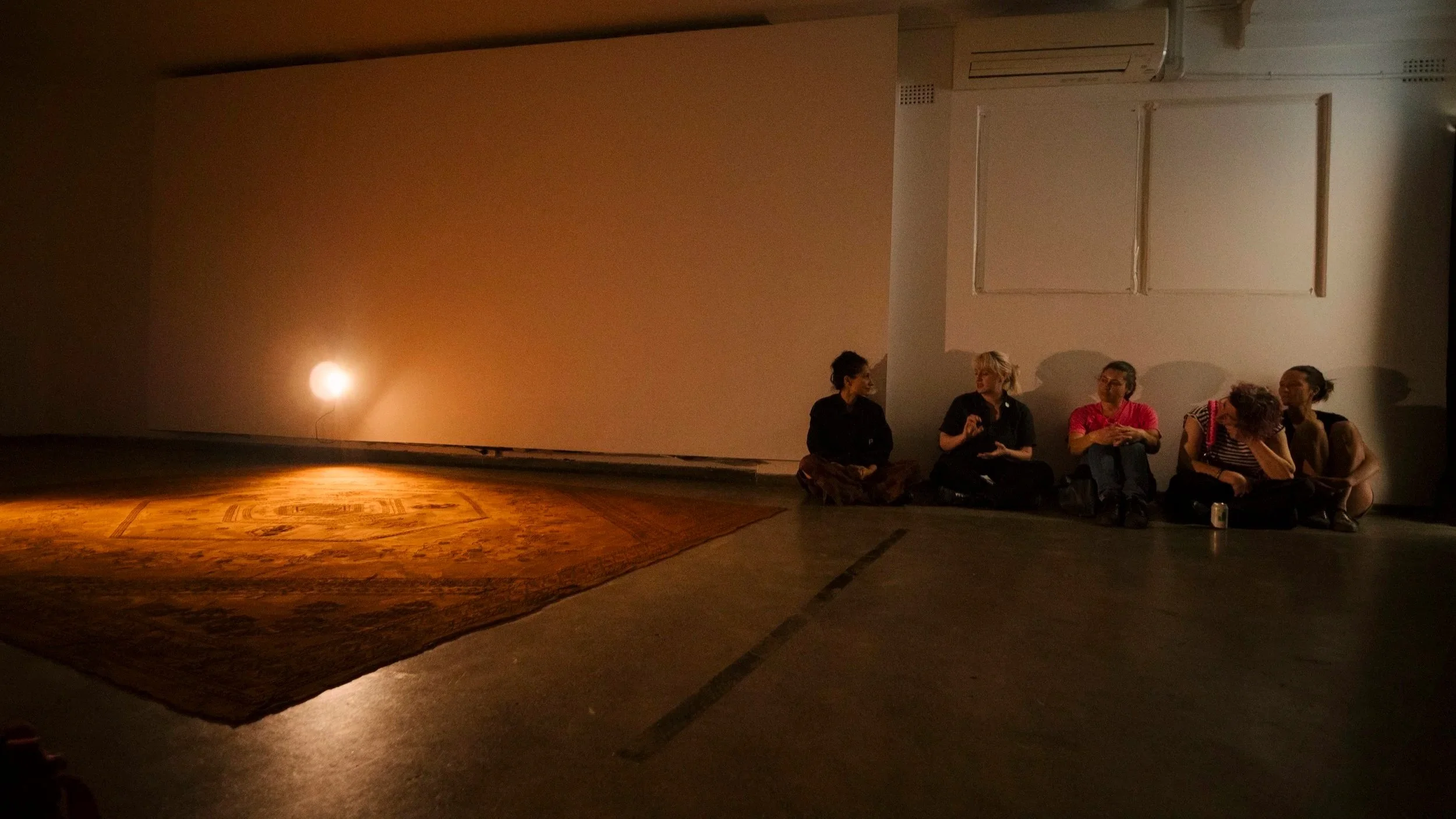
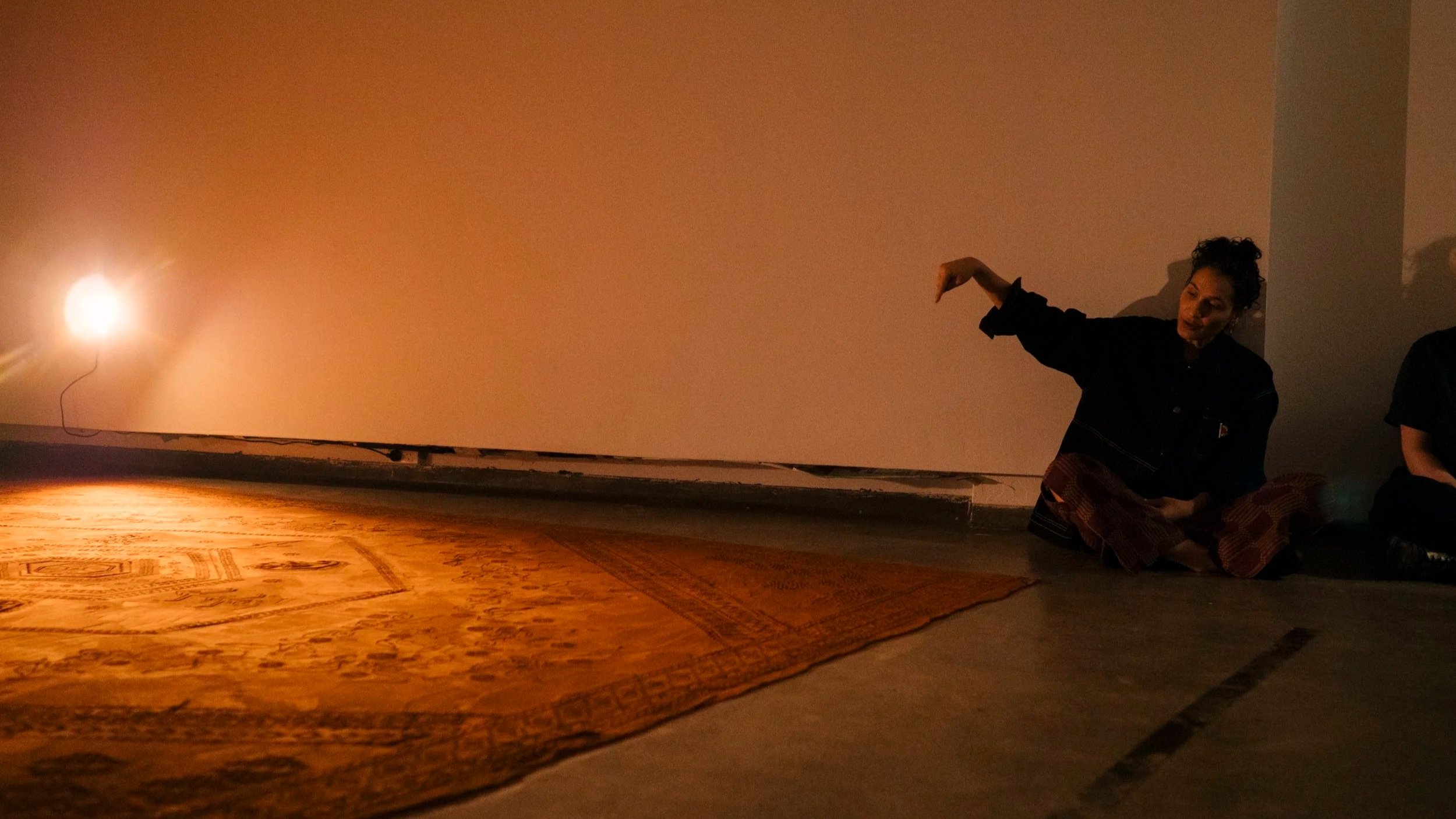
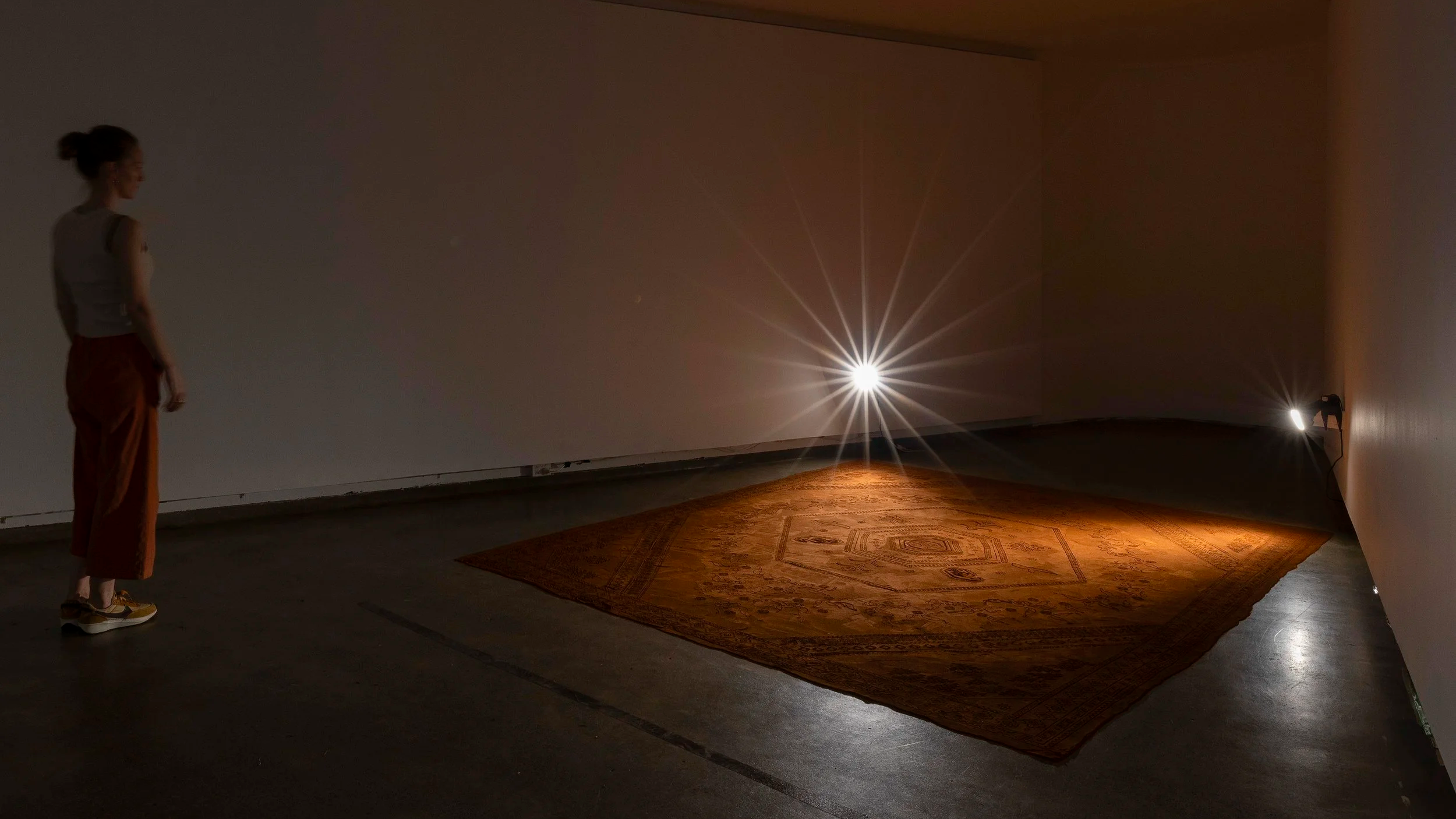
Farsh (Carpet) Disruptions
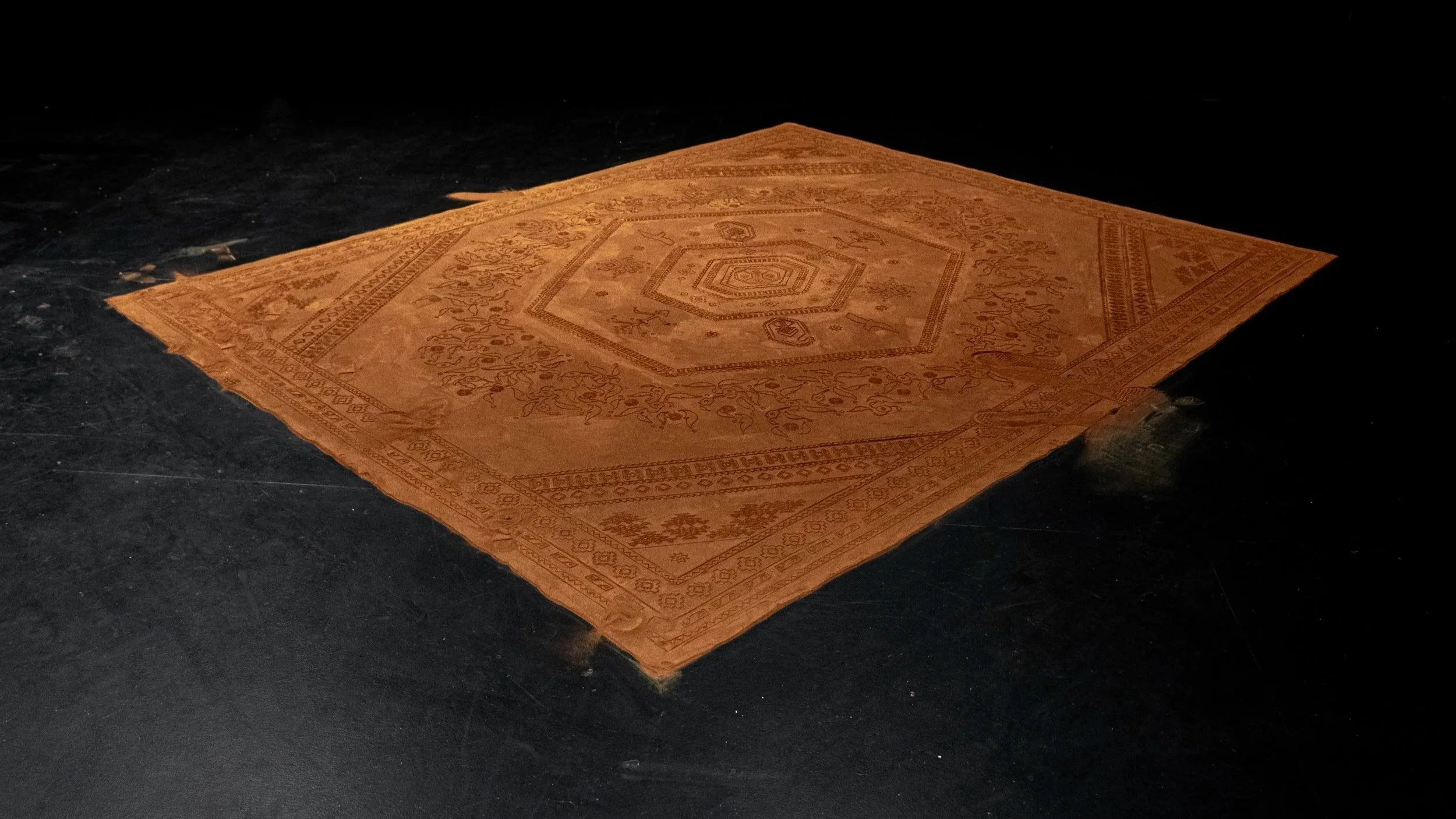
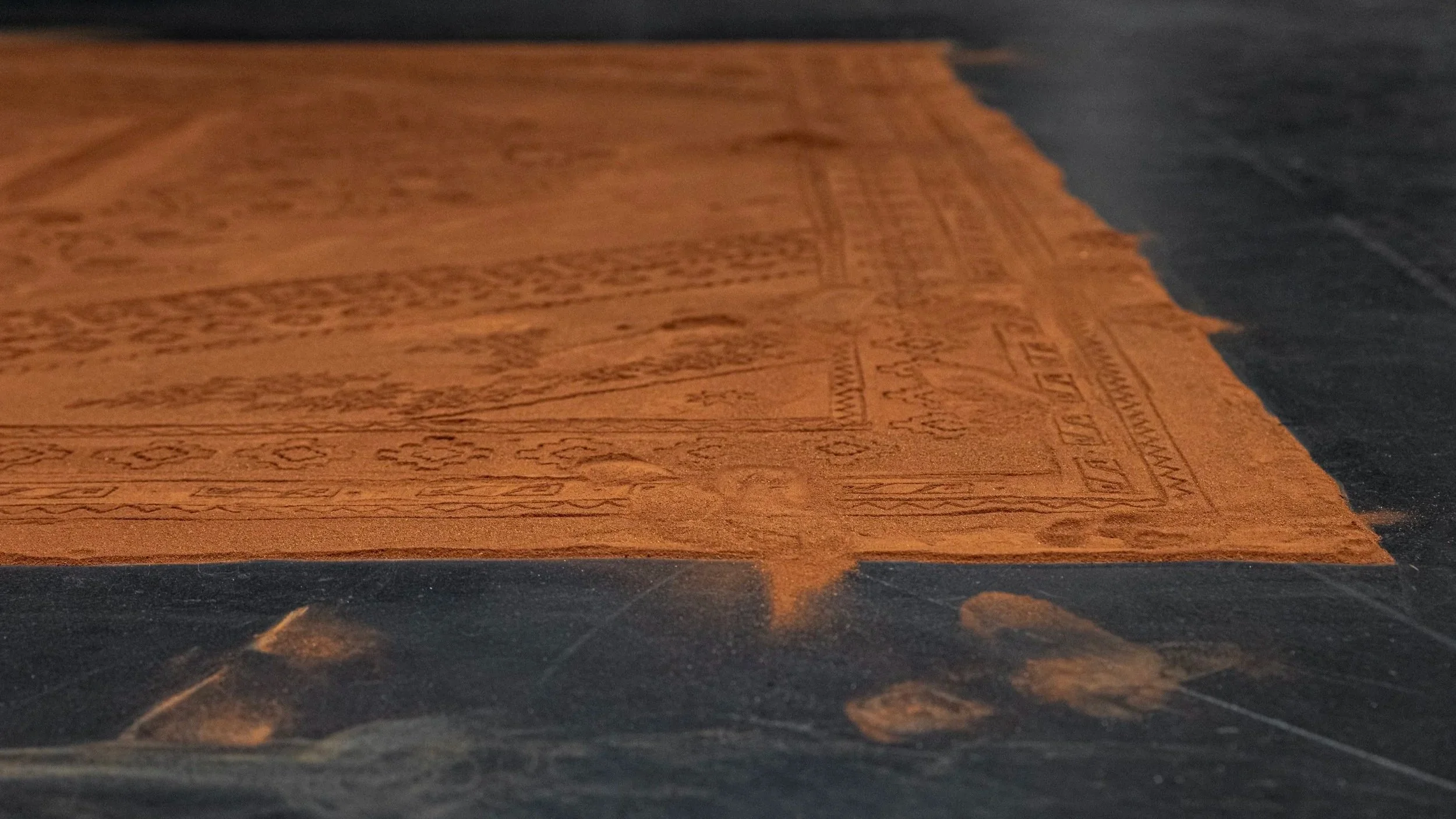
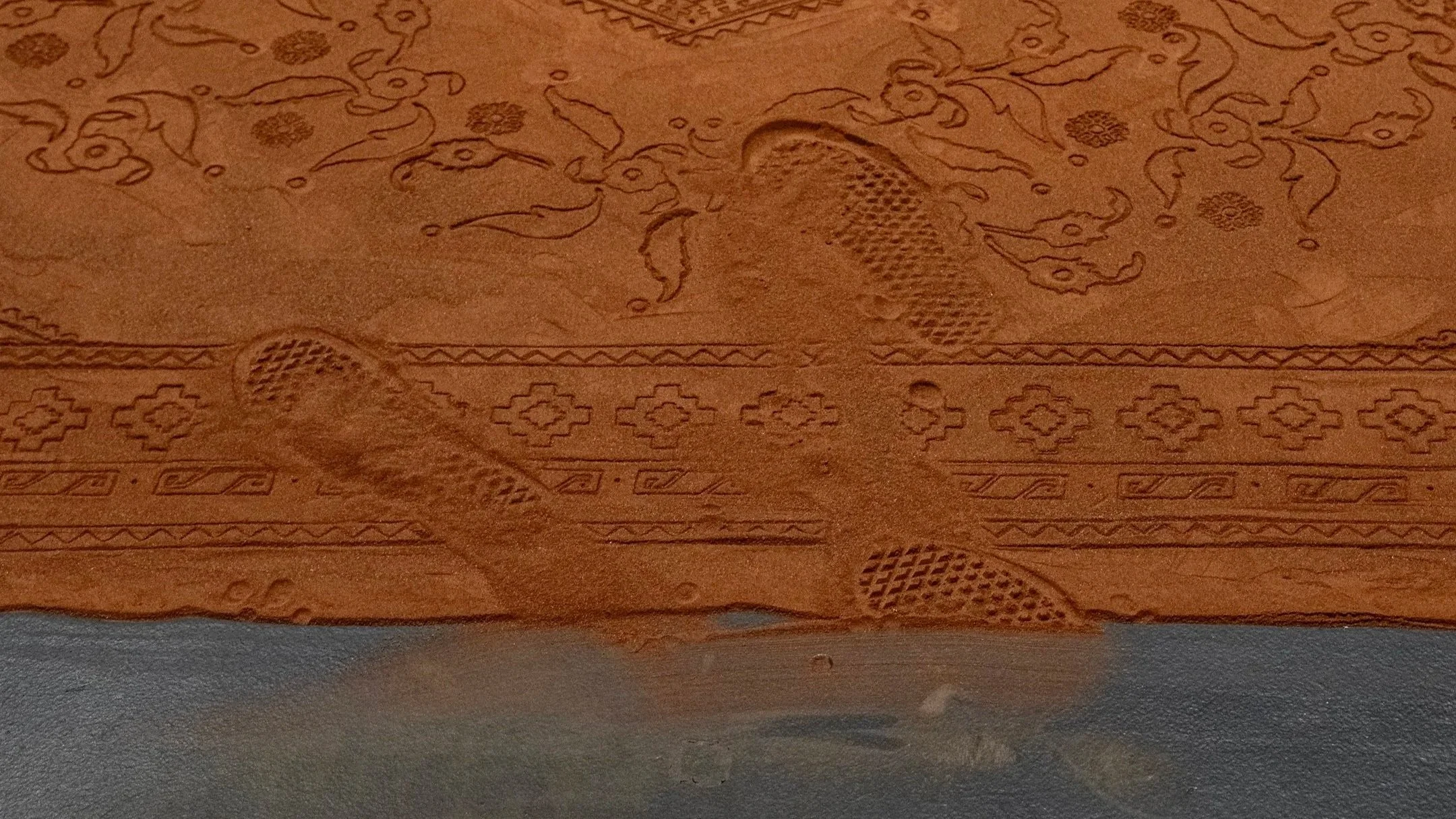
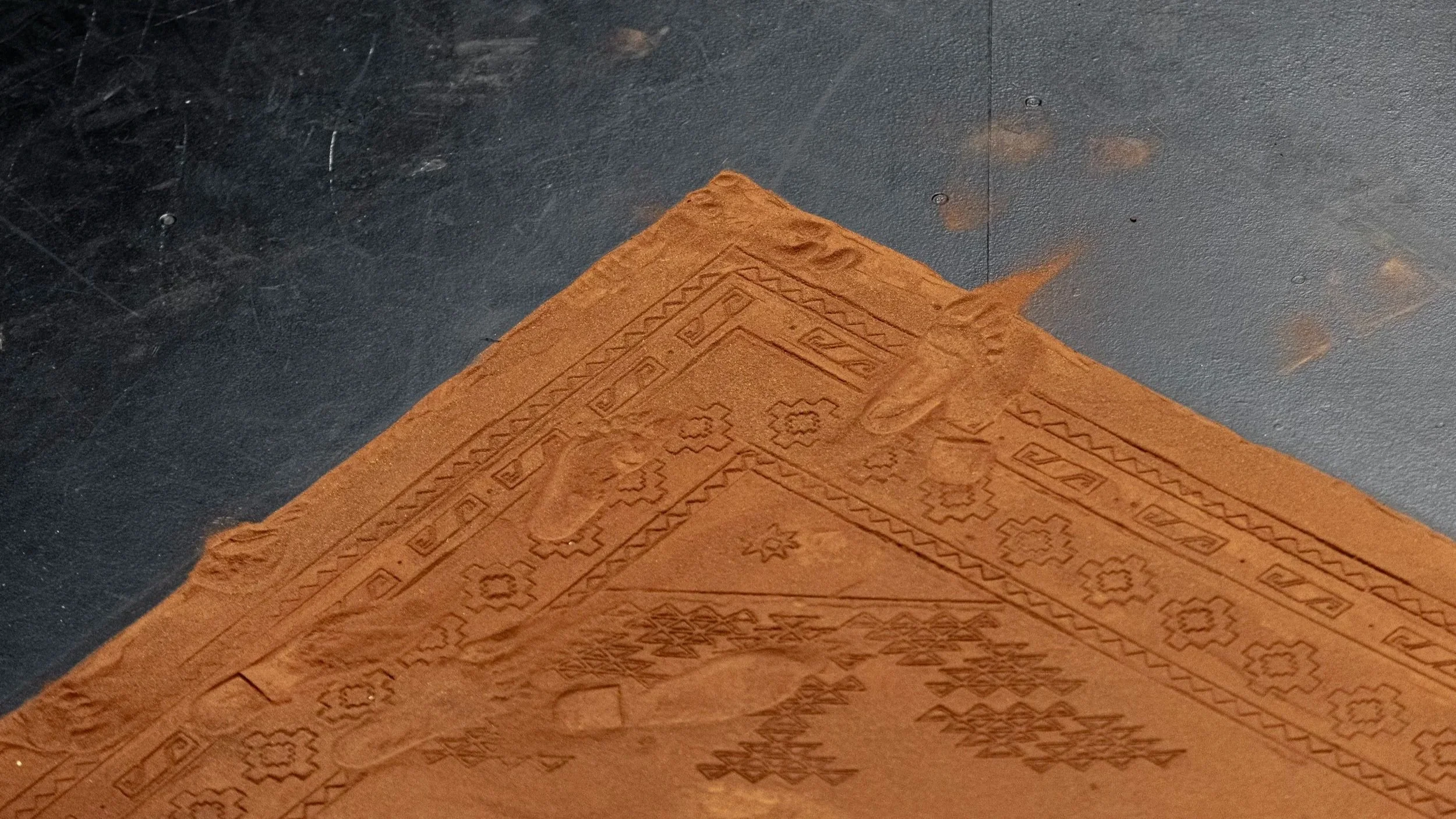

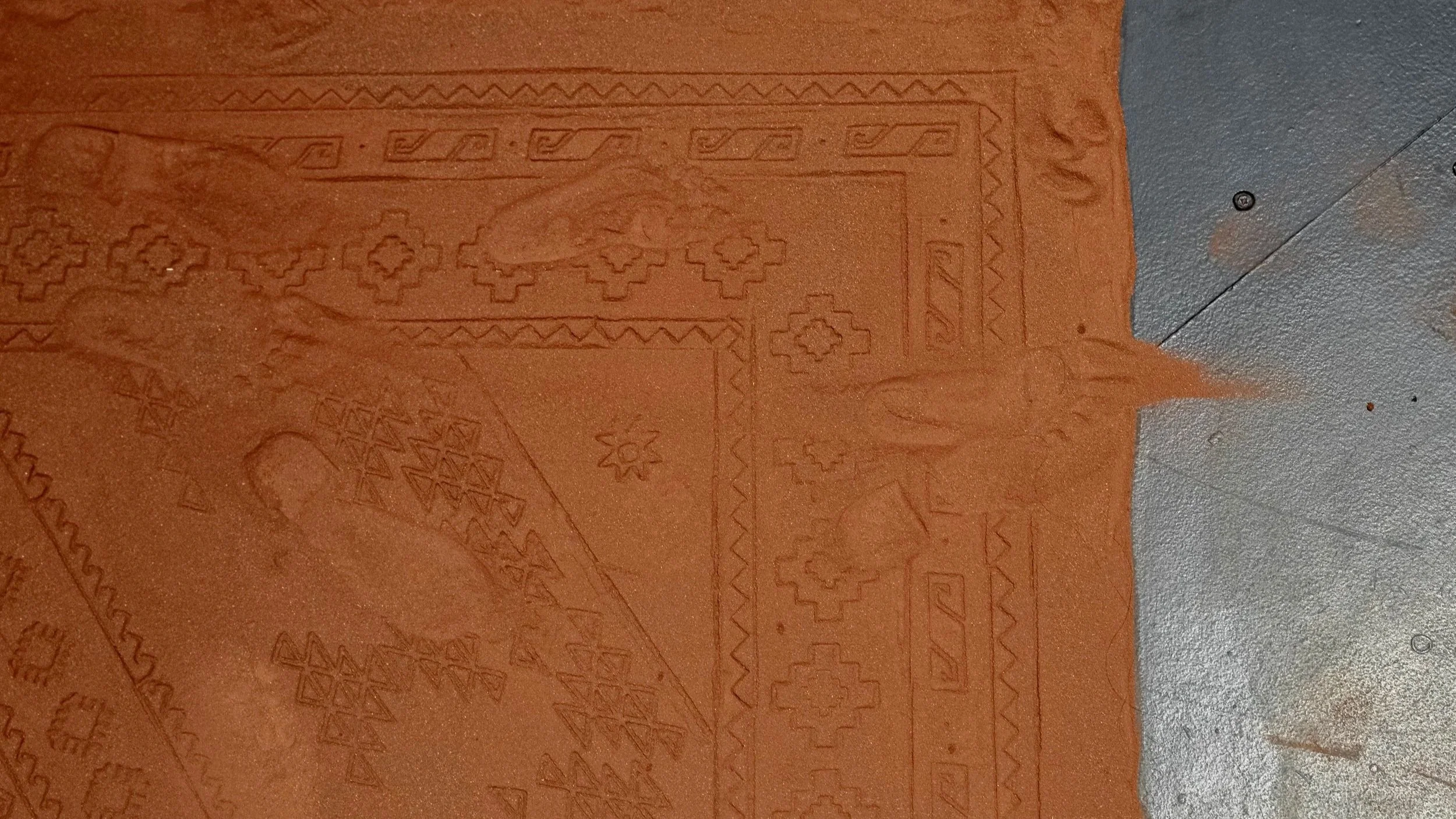
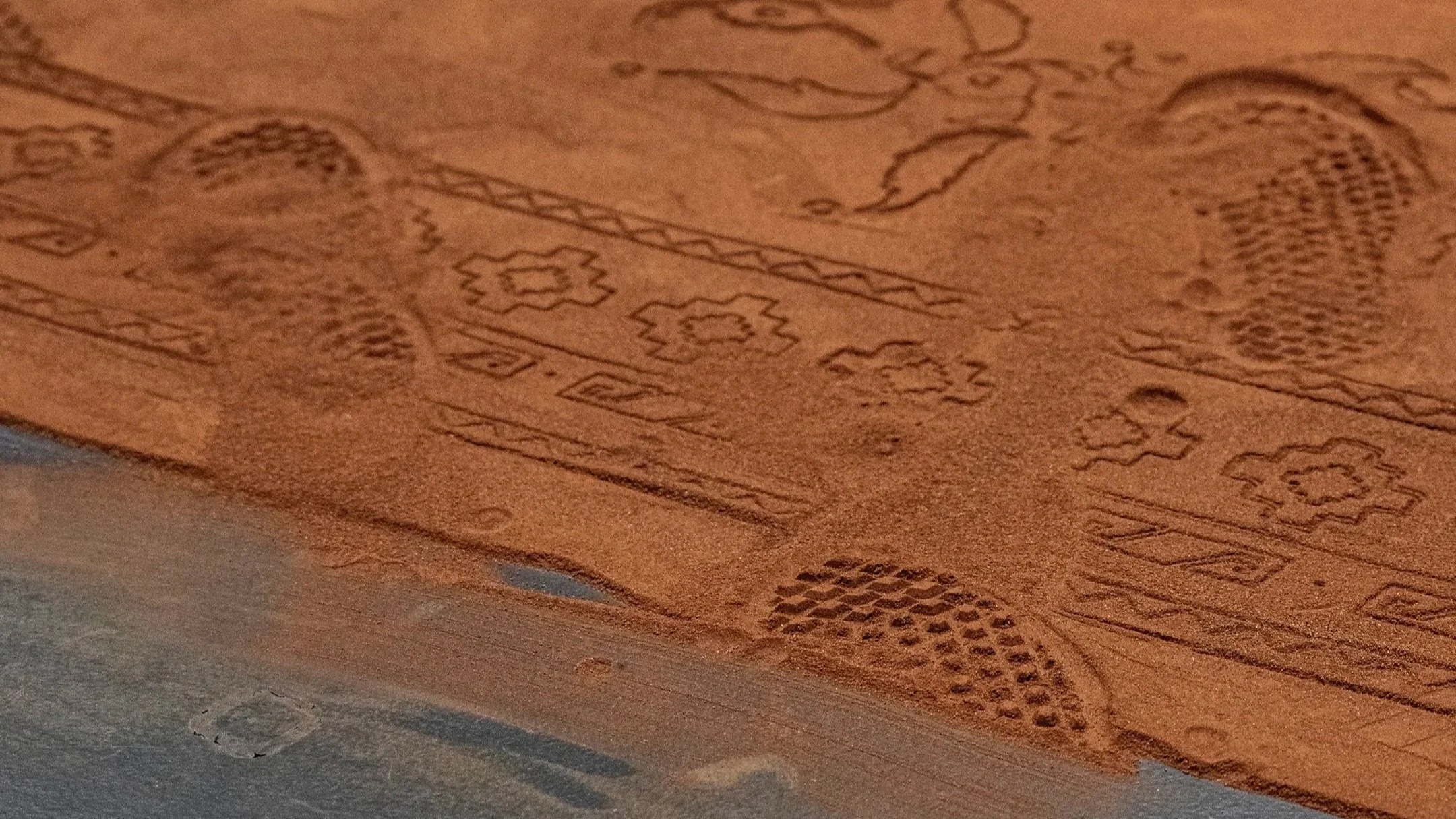
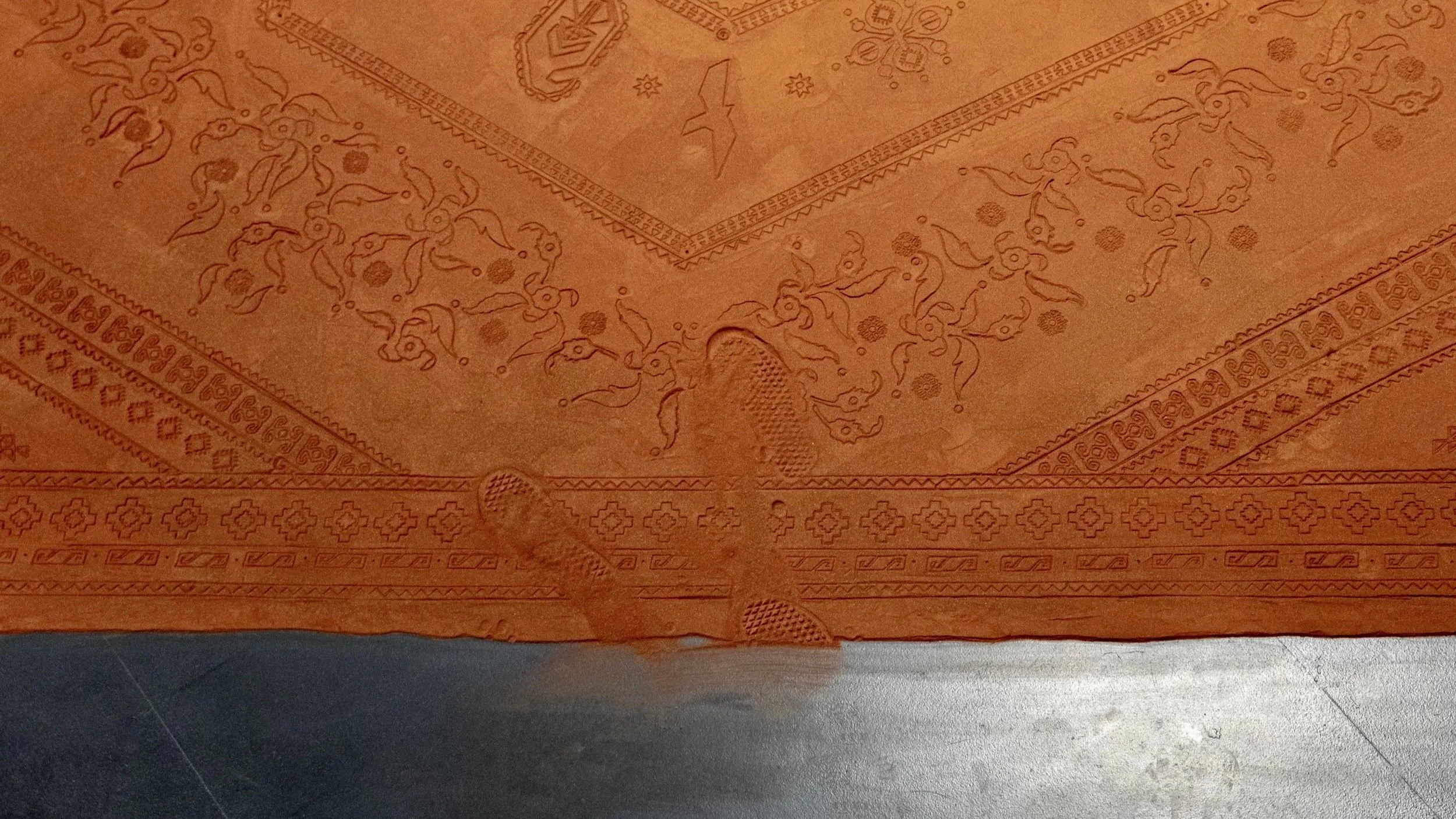

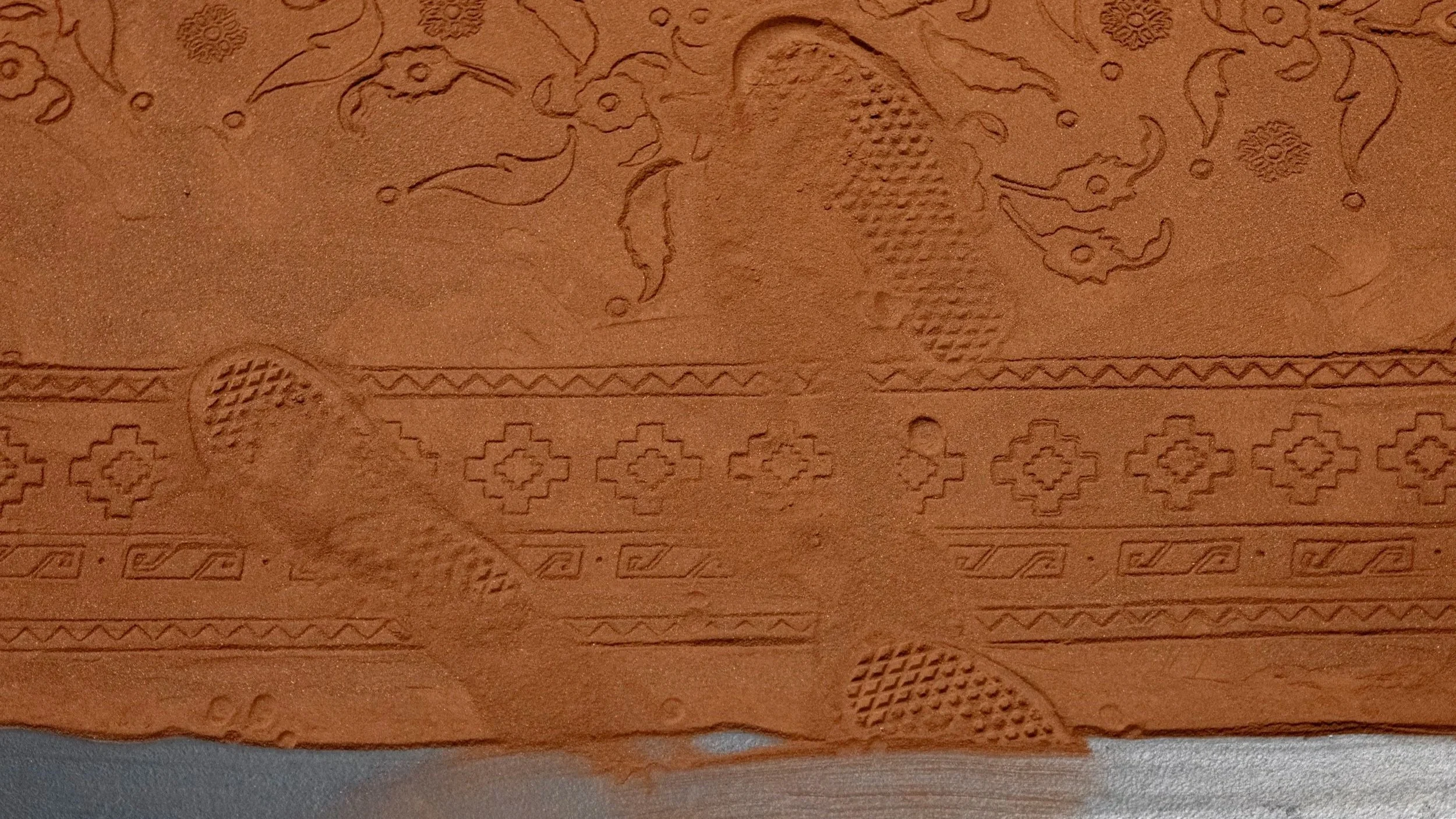
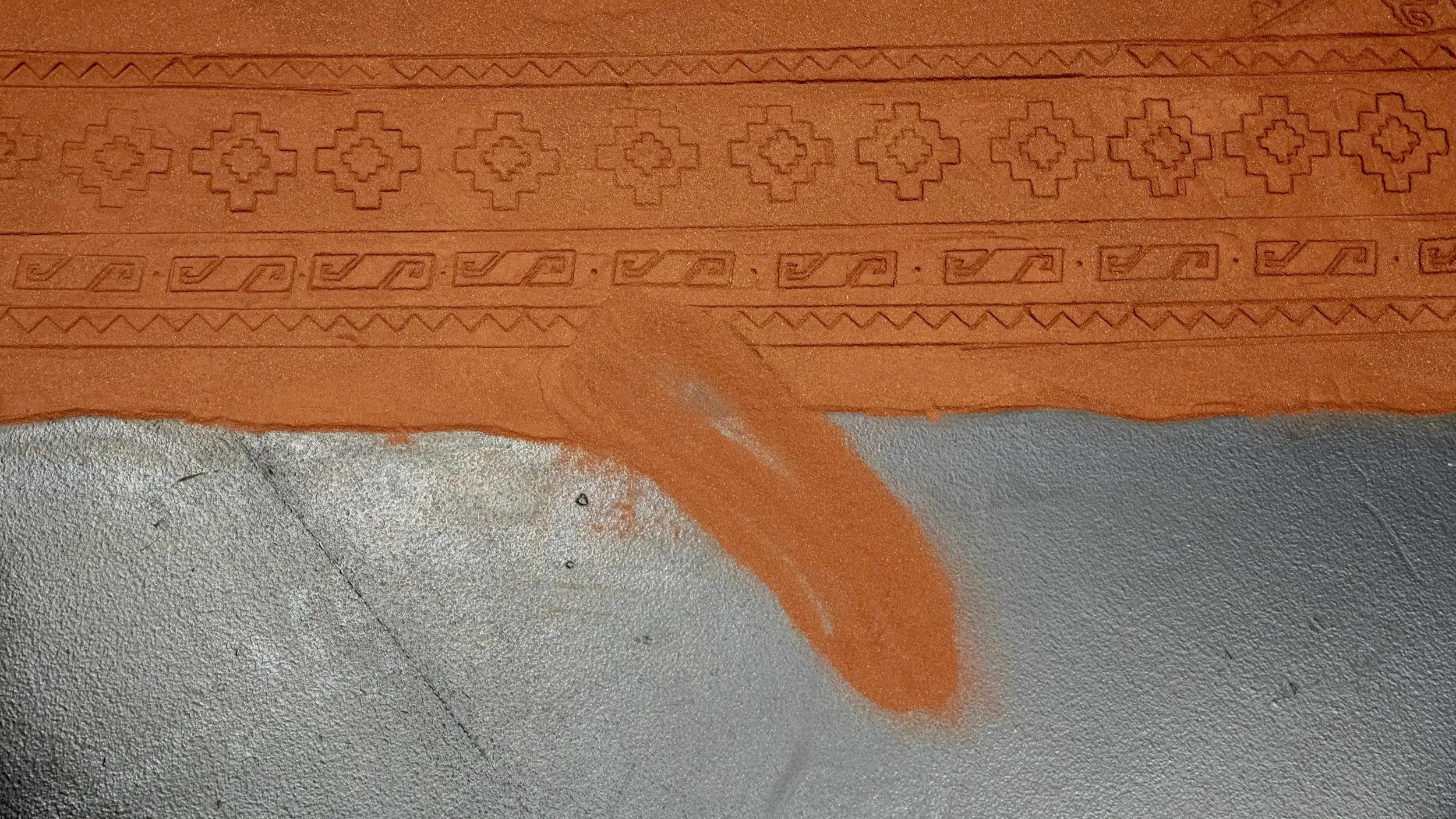
I am drawn to my ancestral homeland of Iran, despite never having lived there. This connection stems from the cultural coordinates deeply embedded in the familial environment that nurtured my sense of belonging as a child and anchored my identity from afar.
Growing up in ‘australia’, amidst a culture of Western individualism and the separation of bodies from ecosystems, I lost my connection to the coordinates of ritual, kinship, and community-building. This erosion left me feeling disorientated, lonely and isolated in adulthood.
For the past year, through a series of family- and community-engaged activations, I found a healing tool that altered this experience – my Farsh فرش. This familiar cultural object, used for centuries in my homeland’s gathering rituals to foster interconnectedness and social cohesion, sat dormant in my home for years, reduced to an ornament.
Re-activating this object for the ritual-of-gathering transformed it into a transitional space. The edge became a physical and emotional threshold, marking the shift from the outer world into an intimate, communal sacred space—one that held cultural laws, memories, and systems for rebuilding the connection and interdependence I had lost. My Farsh فرش became a tool for community-building and place-making with other migrants. The experience of togetherness profoundly transformed my sense of loneliness and deepened my understanding of the struggles faced by other groups in protecting and maintaining culture in ‘australia’.
To translate this experience, I repurposed 45 kilograms of red loamy soil discarded in my community in Magan-djin (Brisbane) and spent 175 hours hand-grinding and sieving the soil into a fine powder. This soil profile mimics the red soils of southern Iran and South-East Queensland. The time spent preparing the material mirrors the labour involved in gathering materials for Farsh فرش weaving. My Soil Farsh فرش (Carpet) was laid with soil and hand-imprinted with 30 3D-printed traditional Farsh فرش motifs, forming a visual language that reflects my process of cultural re-coordination.
Prita Tina Yeganeh


